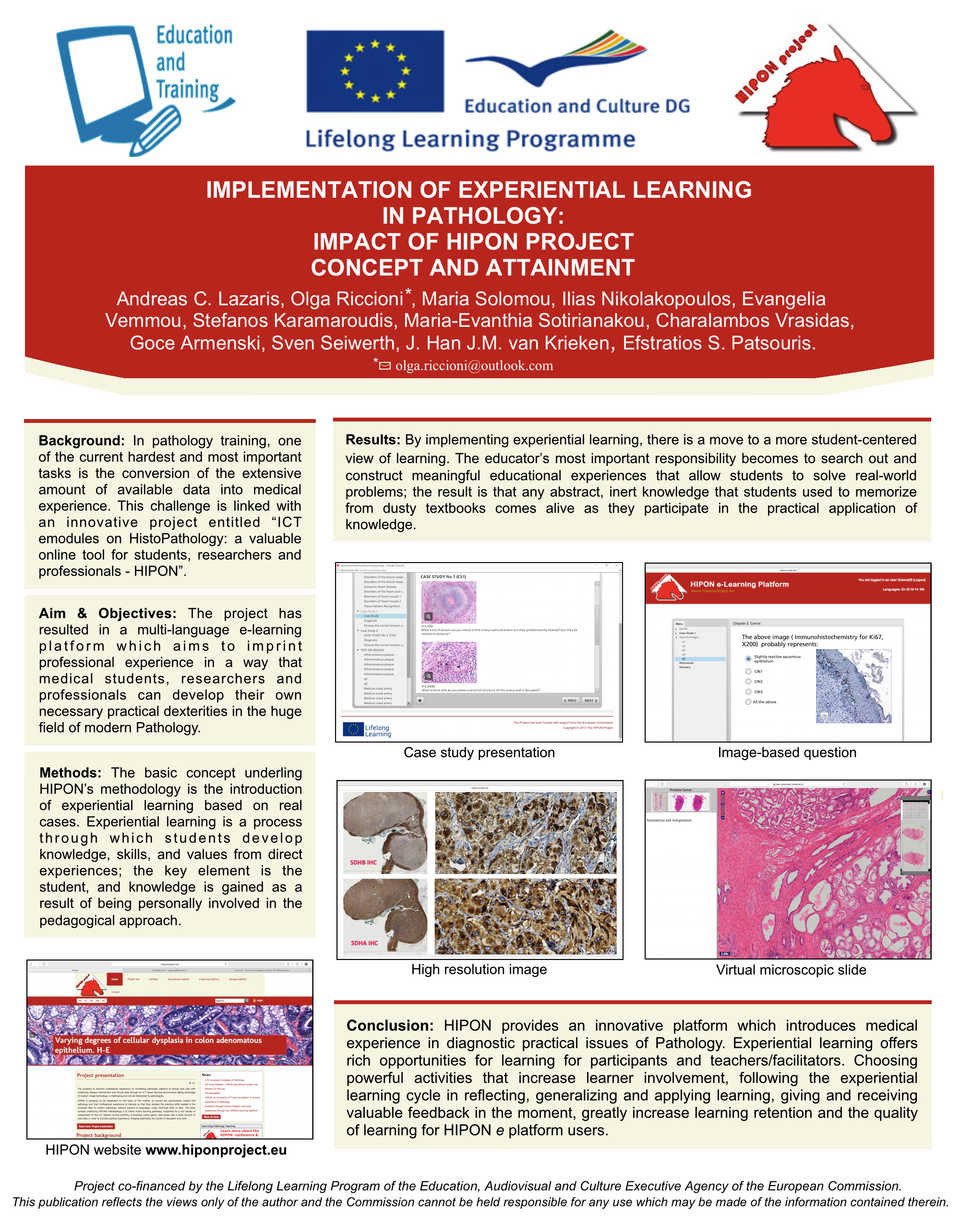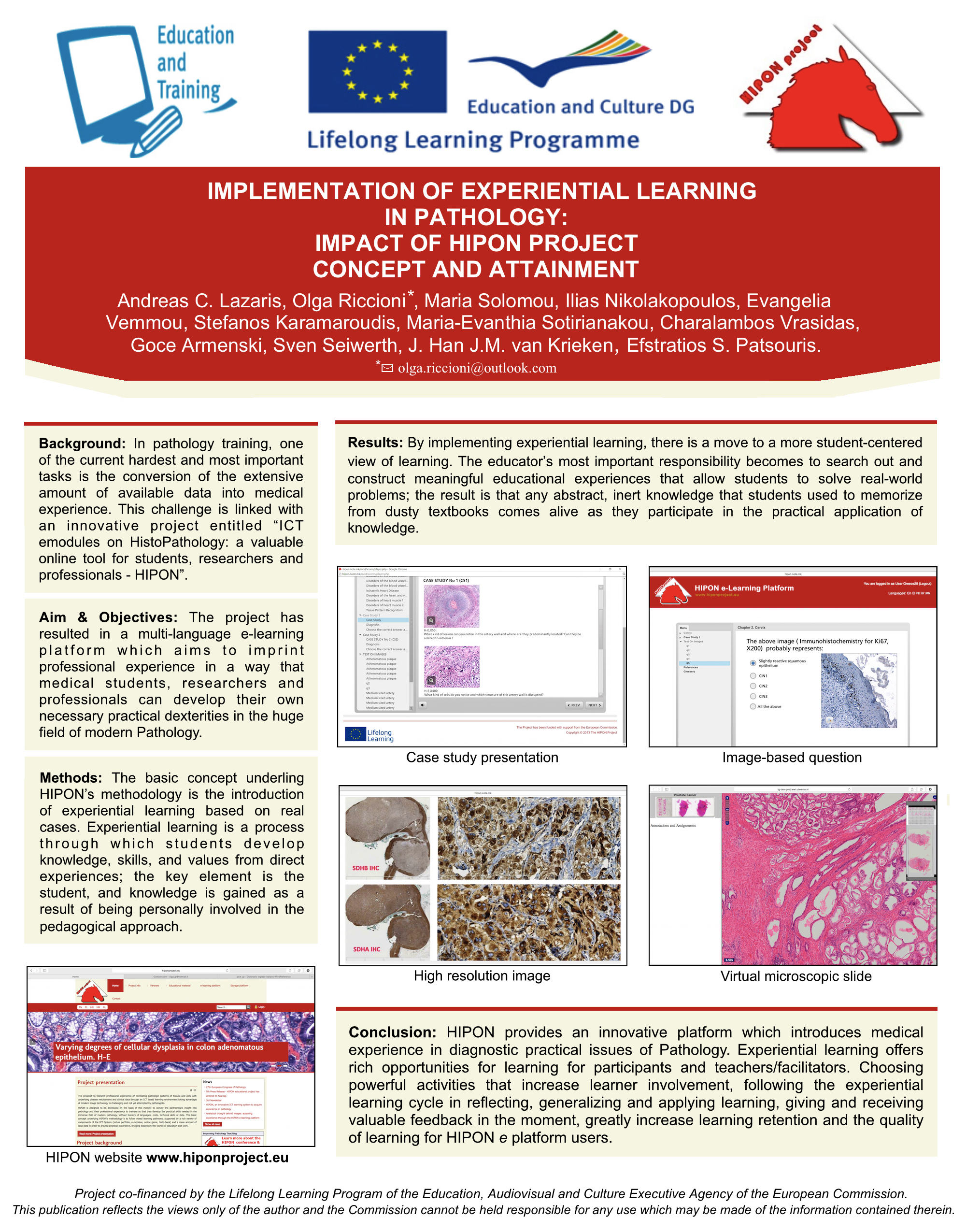Abstract
Background: In pathology training, one of the current hardest and most important tasks is the conversion of the extensive amount of available data into medical experience. This challenge is linked with an innovative project entitled “ICT emodules on HistoPathology: a valuable online tool for students, researchers and professionals - HIPON”.
Aim & Objectives: The project has resulted in a multi-language e-learning platform which aims to imprint professional experience in a way that medical students, researchers and professionals can develop their own necessary practical dexterities in the huge field of modern Pathology.
Methods: The basic concept underling HIPON’s methodology is the introduction of experiential learning based on real cases. Experiential learning is a process through which students develop knowledge, skills, and values from direct experiences; the key element is the student, and knowledge is gained as a result of being personally involved in the pedagogical approach.
Results: By implementing experiential learning, there is a move to a more student-centered view of learning. The educator’s most important responsibility becomes to search out and construct meaningful educational experiences that allow students to solve real-world problems; the result is that any abstract, inert knowledge that students used to memorize from dusty textbooks comes alive as they participate in the practical application of knowledge.
Conclusion: HIPON provides an innovative platform which introduces medical experience in diagnostic practical issues of Pathology. Experiential learning offers rich opportunities for learning for participants and teachers/facilitators. Choosing powerful activities that increase learner involvement, following the experiential learning cycle in reflecting, generalizing and applying learning, giving and receiving valuable feedback in the moment, greatly increase learning retention and the quality of learning for HIPON e platform users.





